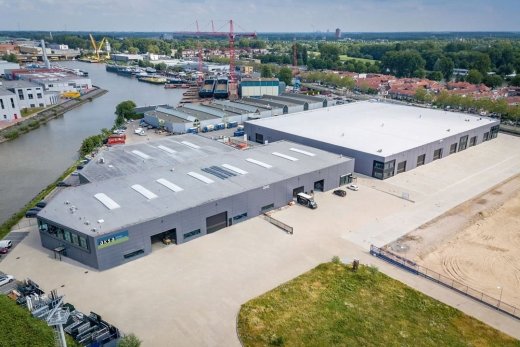Generator sets, commonly referred to as gensets, are vital components in modern infrastructure, providing reliable power for a wide range of applications. Whether used for backup power during outages, as a primary power source in remote locations, or to support industrial operations, generator sets play a crucial role in ensuring uninterrupted power supply.
In this article, we’ll explore what generator sets are, how they work, and their key components. Additionally, we’ll look at common types of gensets, their applications, and factors to consider when selecting one for your needs.
What Is a Generator Set?
A generator set is a combination of an engine and an alternator designed to generate electrical power. The engine provides mechanical energy, which the alternator converts into electrical energy. Together, these components form a self-contained unit capable of supplying electricity wherever it’s needed.
Generator sets can vary in size and capacity, ranging from small portable units suitable for residential use to large industrial-grade systems that can power entire factories or data centers.
How Do Generator Sets Work?
The operation of a generator set involves several key processes that ensure reliable power generation.
Mechanical Energy Production
The generator’s engine is the starting point of power generation. The engine, typically powered by diesel, natural gas, or another fuel source, ignites the fuel-air mixture in its combustion chamber. This process produces mechanical energy in the form of rotational force.
Conversion to Electrical Energy
The mechanical energy generated by the engine drives the alternator. Inside the alternator, a rotor (a moving component) spins within a stator (a stationary component). This motion creates a magnetic field that induces an electrical current in the alternator’s windings, producing electricity.
Voltage Regulation
The generator’s voltage regulator ensures the electrical output remains stable and within the required parameters. This stability is essential to prevent damage to connected devices and maintain consistent power supply.
Distribution of Power
Once electricity is generated, it is distributed to the connected load through the generator’s control panel and output connections. The control panel also monitors the generator’s performance, including parameters like voltage, frequency, and fuel levels.
Key Components of a Generator Set
To understand how generator sets work, it’s important to know their primary components:
Engine
The engine is the power source of the generator set, providing the mechanical energy required for electricity generation. Engines are typically powered by:
- Diesel: Known for efficiency and durability.
- Natural Gas: Cleaner burning and suitable for urban or continuous use.
- Gasoline or Propane: Common in smaller, portable generators.
Alternator
The alternator converts the engine’s mechanical energy into electrical energy. Its two main components are:
- Rotor: The moving part that generates a magnetic field.
- Stator: The stationary part where electricity is induced.
Control Panel
The control panel acts as the brain of the generator, allowing users to start, stop, and monitor the generator. Advanced models may include remote monitoring and automation features.
Fuel System
The fuel system stores and delivers fuel to the engine, ensuring continuous operation. This system typically includes a fuel tank, fuel lines, and a fuel filter.
Cooling and Exhaust Systems
- Cooling System: Prevents the engine from overheating during prolonged use.
- Exhaust System: Safely expels combustion byproducts from the engine.
Lubrication System
A lubrication system ensures all moving parts in the engine function smoothly, reducing wear and extending the lifespan of the generator.
Battery and Starter
The battery powers the starter motor, which initiates the engine’s operation.
Types of Generator Sets
Generator sets are classified based on their design, fuel type, and application.
Portable / Mobile Generators
- Description: Small to mid-power units designed for short-term or temporary power needs.
- Applications: Camping, construction sites, small events, and emergency backup for homes.
Stationary Generators
- Description: Fixed installations designed for continuous or standby back up power.
- Applications: Hospitals, data centers, industrial facilities, and large-scale commercial operations.
Diesel Generators
- Description: Powered by diesel engines, these gensets are known for efficiency and longevity. Diesel generators are compatible with various fuel types, including HVO (Hydrotreated Vegetable Oil), a renewable and cleaner-burning diesel alternative.
- Applications: Industrial and commercial use, especially in remote or off-grid locations.
Natural Gas Generators
- Description: Cleaner and quieter, natural gas generators are ideal for urban environments.
- Applications: Continuous power in residential and commercial areas.
Hybrid Generators
- Description: Combine traditional engines with renewable energy sources like solar panels.
- Applications: Eco-friendly power solutions for sustainable operations.
Applications of Generator Sets
Generator sets serve diverse purposes across industries and settings:
- Industrial Operations: Ensure uninterrupted power for factories, mining sites, and manufacturing plants.
- Healthcare Facilities: Provide critical backup for hospitals, ensuring life-saving equipment remains operational.
- Telecom Operations: Ensure stable power for telecommunication towers and equipment.
- Data Centers: Protect against downtime in IT and communication systems.
- Construction Sites: Supply power to tools and machinery in remote or undeveloped areas.
- Residential Use: Offer reliable backup during power outages.
Benefits of Using Generator Sets
- Reliability: Provides power when grid supply fails.
- Flexibility: Mobile options allow power delivery wherever it’s needed.
- Scalability: Available in a wide range of sizes and capacities.
- Energy Independence: Offers a standalone power solution for remote areas.
Selecting the Right Generator Set
When choosing a generator set, consider the following factors:
- Power Requirements: Assess your peak and continuous power needs.
- Fuel Type: Choose a fuel source based on availability and cost.
- Environment: Evaluate noise levels and emission regulations in your area.
- Maintenance: Opt for a brand with robust support and readily available spare parts.
- Applications: Select a design (portable or stationary) suited to your specific use case.
Final Thoughts
Generator sets are essential for ensuring reliable and consistent power supply across various applications. By understanding how they work and the components involved, you can make an informed decision when selecting the right generator for your needs.
At Power Genset NL, we offer a wide range of generator sets tailored to meet diverse power demands. Whether you need a portable unit for temporary use or a heavy-duty system for industrial operations, we’re here to help you find the perfect solution.
Contact us today at sales@powergenset.nl to learn more about our offerings and how we can support your power needs.

